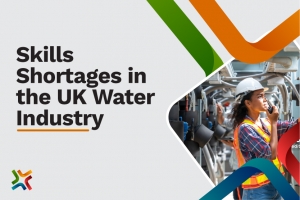The engineering sector is at a crossroads. With many seasoned engineers nearing retirement and a looming skills gap on the horizon, the need for sustainable work practices has never been more crucial. These practices not only help retain the invaluable knowledge of experienced engineers but also pave the way for ongoing innovation.
The Current State of Engineering: A Closer Look
Let's start by looking at the numbers. The engineering workforce is aging, and projections suggest that many will retire in the coming years. This poses a significant challenge, especially in sectors where experience is vital for growth and innovation.
Understanding Sustainable Work Practices
Sustainable work practices are all about finding balance and longevity in the workplace. This includes things like promoting work-life balance, offering flexible hours and remote work options, and prioritising employee well-being. Technology also plays a big role, with automation and AI making processes more efficient.
The Value of Experienced Engineers
Experienced engineers are the backbone of the industry. They bring technical expertise and problem-solving skills that are hard to replace. They also serve as mentors and guides for younger engineers, passing on their knowledge and wisdom.
Encouraging Engineers to Stay Longer
To keep experienced engineers in the workforce longer, we need to offer incentives like flexible retirement plans, part-time work options, and opportunities for continued learning and development. Creating age-friendly work environments is also key.
Government and Policy: Making a Difference
Government policies can make a big difference in promoting sustainability in the workplace. This includes laws against age discrimination and incentives for companies to retain older workers.
The Broader Impact of Sustainable Work Practices
Sustainable work practices benefit not just companies, but society as a whole. They lead to increased productivity, innovation, and reduced environmental impact.
Success Stories: Companies Leading the Way
There are already companies out there leading by example, with innovative policies that support older workers. These success stories show us what's possible when we prioritise sustainability in the workplace.
Challenges and Considerations
Of course, embracing change isn't always easy. There may be resistance from both employees and management, and balancing the needs of different generations can be a challenge. But by working together and staying open to new ideas, we can overcome these obstacles.
Conclusion: Looking Ahead
In conclusion, sustainable work practices are essential for preserving the knowledge and expertise of experienced engineers. As we look to the future, it's up to all of us—businesses, policymakers, and engineers—to embrace sustainability and ensure a bright future for the industry.
Join the Conversation
We want to hear from you! Share your thoughts, experiences, and ideas for promoting sustainability in the engineering workplace. Together, we can create a better future for all.
Skills Shortages in the UK Water Industry
The demand for water and wastewater services in the UK continues to swell as the industry grapples with a serious skills shortage. Tackling this issue requires a comprehensive approach, from embracing technology and diversity to fortifying training programmes, to fostering stronger collaborations between academia and industry.
But amid these challenges is a realm of opportunity. With UK water companies recently announcing plans to invest the largest amount of money into the industry on record, attracting professionals to industrial water jobs could be that little bit easier.
Let’s look at what the investment entails, alongside the current talent challenges and where job opportunities lie for graduate engineers and apprentices in the UK water industry.
Exciting Water Industry Jobs on The Horizon
Last year, the largest water companies in the UK set forth a record-breaking proposal – to invest £96 billion into water and sewage infrastructure between 2025 and 2030. It will create more than 30,000 new jobs in water treatment and 4,000 new apprenticeships – a 50% boost to the current workforce.
The plans include building ten new reservoirs to secure water supplies, as well as cutting leakage by over a quarter by 2030. This includes an £11 billion investment to upgrade sewage infrastructure to reduce overflow spills, create ‘smart sewers’ using technology to intelligently control flows, as well as new nature-based schemes to manage rainwater. It’s touted as the most ambitious modernisation of sewers since the Victorian era.
Challenges Across the Industry and How to Address Them
Unfortunately, the UK water sector has faced many years of underinvestment and mismanagement. These factors led to insufficient maintenance and inefficient resource allocation, exacerbating the decline of ageing water infrastructure and decreasing its overall performance.
It appears the record levels of investment announced will go a long way towards addressing these challenges. But there is another challenge taking precedence, as water infrastructure is facing the same issue as the water workforce – it’s ageing.
According to the Water Industry Journal, more than 20% of those in water industry jobs will retire in the next decade. That’s a large accumulation of knowledge due to leaving the sector.
In stark contrast, just 8% of the UK water sector workforce is aged under 24. Addressing these dual challenges requires a multi-faceted approach, and here are a few suggestions to help you tackle this pressing issue.
Go Digital
The UK water industry is increasingly adopting digital technologies to improve efficiency, sustainability, as well as supply and infrastructure resilience. Tech such as data analytics, Internet of Things, artificial intelligence (AI) and remote monitoring are transforming how water and wastewater systems are managed and maintained.
For instance, Anglian Water became the UK’s first water organisation to implement digital twin technology. The tech is pre-emptive – it creates a digital representation of the region’s water treatment and distribution infrastructure to pinpoint where leaks are likely to happen before they actually do.
Another example is the Dutch water authority Vallei en Veluwe, which manages 16 wastewater treatment plants in the Netherlands. They use AI within their wastewater transport and treatment control systems to predict critical changes in flow and automate the appropriate response, saving their engineers hours of time. They also use machine learning to automate key controls, like pump and valve adjustment, to optimise nutrient removal and reduce energy and chemical use without direct worker involvement.
With the increasing integration of technologies, Engineers who possess digital skills (or those who are interested in developing them) are highly in demand.
Many water engineering jobs of the future will include AI, data science and software engineering skillsets.
Go Diverse
An Energy and Utilities Skills Partnership report found women make up only 29.1% of the UK water industry workforce, compared to 47.3% of women across all sectors. There’s clearly room for improvement to bring the sector in line with the nation’s average.
There is a host of strategies you can use to attract more women into your workforce, particularly in to technical roles. It begins with ensuring your recruitment policies and materials are inclusive, paying particular attention to your job advertisements to remove any real or perceived barriers to employment. This is a task a specialist water and wastewater recruitment partner can assist with, like us here at Alexander Associates.
Other ways to attract female water talent are to have flexible working policies, enhanced leave entitlements (for instance, maternity, adoption, paternity, shared parental and elder care), as well as train and promote from within. Some water companies also have specific employee leadership training programmes for this purpose.
Go Young
With so many skilled water professionals retiring, it’s important to look to the younger generation to replace them. According to the Energy and Utilities Skills Partnership report, just 9.2% of those currently working in water industry jobs are aged 16-24.
A key way to boost this figure is to take on apprentices. While you can reach out to new potential talent, it’s also worth looking within. You may have existing younger employees who are interested in up-skilling, perhaps from a general labourer role to becoming a certified water treatment plant operator.
Keep an eye out for opportunities to involve your older workforce in these schemes. Their transfer of knowledge built from years in the industry is invaluable to not only your younger employees but your business overall.
There are a number of additional avenues for connecting with younger possible hires, from exhibiting at careers fairs to talks about your work in water at schools. These can be virtual, blended or face-to-face.
Go Broad
As water skills are in scarce supply, expanding your hiring parameters can be extremely beneficial. Instead of only looking for those with water experience, you can include candidates with a solid foundation of core engineering and/or project manager competencies.
Engineering Jobs with Transferable Skills for the Water Industry
Examples of engineering disciplines with transferable skills include Environmental Engineers, who can transfer their experience from the energy or waste management sector directly to water. Industrial Engineers can use their knowledge of optimising complex systems and processes to improve the efficiency and effectiveness of water treatment and distribution systems.
Mining Engineers have key insights into extracting and managing natural resources that apply to water resource management. Agricultural Engineers are somewhat similar, with a foundation in irrigation systems design and water conservation practices. And ex-Military Engineers with water infrastructure experience also have highly transferable skills that can be invaluable in a range of projects.
Find Support for Hiring Engineers or Applying for Industrial Water Jobs
Addressing the UK’s water skills shortage requires proactivity. This includes investment in training, fostering collaboration and being open to widening your hiring talent pool.
Alexander Associates can help you source the candidates needed to drive success in your business, from curating the right recruitment materials all the way through to offer negotiations. If you’re an engineer with transferable skills for the water industry and looking for a career change, we can help you with that, too. Please contact one of our specialists today.
The Importance of Ecologists: Guardians of Biodiversity
Ecologists are the guardians of biodiversity, studying the intricate relationships between living organisms and their environments. Their work is essential for understanding and preserving ecosystems, ensuring the survival of countless species and maintaining the delicate balance of our natural world.
One of the most critical aspects of an ecologist's role is their expertise across a range of UK habitats and protected species. This includes a deep understanding of habitats such as woodlands, grasslands, wetlands, and urban environments, as well as specialized knowledge of species such as bats, newts, and toads.
Bat Conservation: Unravelling the Mysteries of the Night Sky
Bats are among the most enigmatic and misunderstood creatures in the animal kingdom. Yet, they play a crucial role in maintaining healthy ecosystems by controlling insect populations and pollinating flowers. Ecologists specializing in bat conservation are skilled in bat sound analysis, using specialized equipment and techniques to study their behaviour and habitat requirements.
Recruiting ecologists with expertise in bat ecology can lead to significant advancements in our understanding of these elusive creatures. By studying their habitat preferences, migration patterns, and roosting behaviour, ecologists can develop targeted conservation strategies to protect bat populations and their habitats.
Newt and Toad Ecology: Safeguarding Amphibian Biodiversity
Amphibians such as newts and toads are indicator species, meaning their presence or absence can indicate the health of an ecosystem. Ecologists specializing in amphibian ecology play a crucial role in monitoring and conserving these species, particularly in wetland habitats where they are most abundant.
Recruiting ecologists with experience in newt and toad ecology is essential for ensuring the long-term survival of these species. By conducting surveys, assessing habitat suitability, and implementing mitigation measures, ecologists can help mitigate the impacts of development and habitat degradation on amphibian populations.
Wetland Conservation: Preserving Vital Ecosystems
Wetlands are among the most biologically diverse and productive ecosystems on Earth, providing essential services such as water filtration, flood control, and carbon sequestration. However, wetlands are also among the most threatened habitats globally, facing pressures from urbanization, pollution, and climate change.
Ecologists specializing in wetland conservation play a crucial role in preserving these vital ecosystems. By conducting habitat assessments, monitoring water quality, and implementing restoration projects, ecologists can help safeguard wetland biodiversity and ensure the continued provision of ecosystem services.
Conclusion: Investing in a Sustainable Future
Recruiting skilled ecologists with expertise across a range of habitats and species is essential for addressing the environmental challenges we face today. By investing in the recruitment and development of environmental professionals, we can build a more sustainable future for generations to come. Together, we can work towards a world where humans and nature coexist harmoniously, preserving biodiversity and protecting the planet for future generations.
While the ability to work in pyjamas often headlines discussions about the benefits of working from home, there is a breadth of unsung advantages that lie beneath the surface. These perks not only influence our personal lives but have the power to reshape the way we approach our work. The traditional emphasis on flexibility obscures other transformative benefits that enhance innovation, stimulate strategic thinking, and support personal development. Working from home offers unique opportunities that contribute to both professional success and personal well-being, marking a shift in our understanding of the contemporary workplace.
The Innovation Spark from a New Environment
Transitioning to a home office can do more than simplify the morning routine. It ushers you into a realm where the everyday inspires the extraordinary. Renowned psychologists have found that new settings can stimulate fresh neural pathways, leading to sudden bursts of creativity. The comfort of a home environment, with its inherent tranquillity and personal touch, serves as fertile ground for generating groundbreaking ideas.
Consider Amy, a graphic designer whose creative output surged when she swapped her cubicle for her airy home studio. Moreover, corporations like XYZ Tech report a 30% uptick in innovative project proposals since allowing staff to work remotely. Such evidence suggests that an optimised home workspace could be the missing ingredient for those seeking their next big breakthrough.
Strategies for Optimising the Home Environment for Innovation
- Personalise your space with inspiring art and objects.
- Alter your view or rearrange furniture to prevent a stale perspective.
- Designate an 'idea board' to freely express and develop new concepts.
The Quiet Space for Strategy and Reflection
Historical luminaries from Aristotle to Einstein recognised solitude as essential for deep thinking. Contemporary research echoes this wisdom, linking quiet time directly with the capacity for making strategic decisions. A home environment, away from the buzz of an open-plan office, can grant us the space necessary for insightful reflection.
Executives and entrepreneurs recount that their most strategic decisions often stem from periods of uninterrupted solace, which they find in the confines of their WFH arrangements. Unlike the chorus of phones and colleague interruptions, the home offers a sanctuary for contemplation.
Tips for Creating a Reflective Workspace at Home
- Introduce calming colours and plants to reduce sensory overload.
- Implement noise-cancelling solutions to maintain a quiet environment.
- Schedule regular 'thinking breaks' to digest information and strategies.
The Mental Health Perspective
Home working can serve as an antidote to the stress-inducing confines of the office. Removed from the buzz of constant office chatter and the glare of fluorescent lights, individuals report a significant reduction in anxiety and a heightened sense of control over their work life. The impact on mental health is not to be understated; the autonomy over one's environment is a psychological game-changer!
This sense of empowerment extends to work-life balance, where the traditional commute dissipates, freeing up valuable hours for family, hobbies, and rest. Healthy habits flourish when the home doubles as an office, allowing for midday workouts or meals cooked from scratch, supporting both mental and physical well-being.
Personal and Professional Development Opportunities
WFH uniquely positions individuals to engage in continuous learning and skill-building. With resources mere clicks away, employees can integrate professional development courses into their daily routines, substantially increasing their marketability and career trajectory. For instance, web developer John Smith attributes his advanced JavaScript skills to the online course he took between projects while working remotely.
The remote work model necessitates self-discipline and time management, competencies that pay dividends in any career. Cultivating such traits in the home office primes professionals for leadership roles, where such skills are paramount.
Environmental and Societal Contributions
Commutes, often the bane of a worker's existence (particular when you encounter multiple sets of temporary lights and an 11 mile journey can take 45 minutes!) not only drain hours but release significant carbon emissions. Working from home, on the other hand, has the potential to decrease one's carbon footprint significantly. With fewer cars on the road, we see a reduction in pollution, a benefit to both the environment and public health.
Additionally, the diffusion of job opportunities from city centres to local communities stimulates economic growth in areas previously overlooked, enriching local economies, and encouraging a more balanced societal development.
Conclusion
This exploration of working from home highlights profound benefits that transcend the traditional view of remote work. By embracing the deeper advantages that come with a home office, professionals can ignite innovation, hone strategic thinking, and promote mental well-being. The conversion from traditional office work to a remote setup could be less about what we lose in translation and more about what we stand to gain – for our careers and for society at large.
We encourage readers to reconsider the confines of traditional work environments and explore the extraordinary possibilities that come with working from home. The transformative potential of WFH is ripe for the taking. What will you unlock from your home office?
Additional Resources
For those seeking to explore further the benefits of working from home, the following resources offer a wealth of information:
"The Remote Work Revolution: Succeeding from Anywhere" by Harvard Business School professor Tsedal Neele
Remote Work Advocates - A community with webinars on best remote work practices
Productivity Software Reviews - Tools and software designed for remote work success.
Comments and Engagement
I welcome you to share your thoughts on the benefits and challenges of working from home in the comments below. Join the discussion or participate in our ongoing survey to contribute to our collective understanding of WFH practices. For personalised advice or answers to your questions, do not hesitate to reach out.








